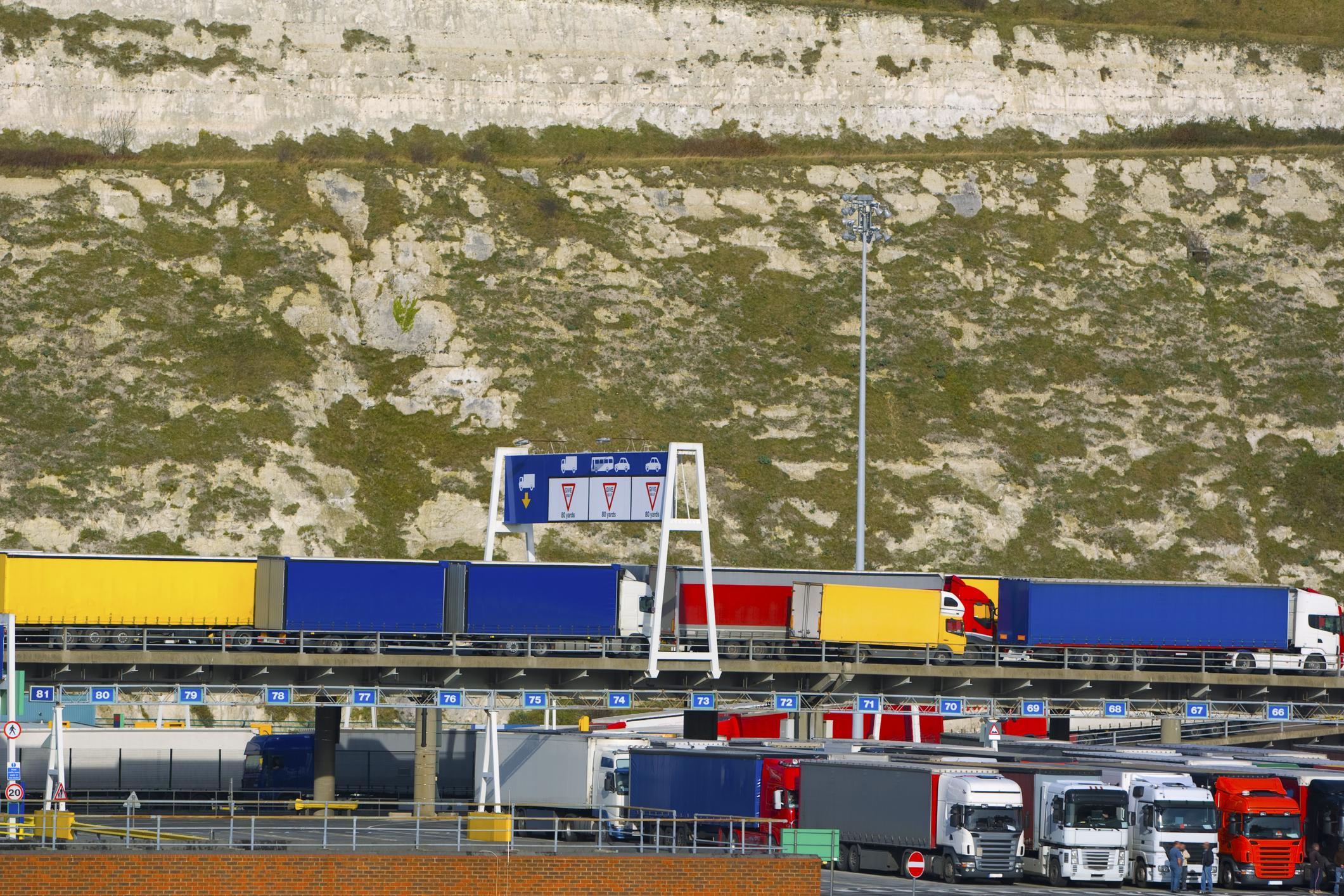Government plans new Brexit bureaucracy for British businesses to avoid chaos at ports
Lorries will need permission from new HMRC computer system before heading for Dover

Your support helps us to tell the story
From reproductive rights to climate change to Big Tech, The Independent is on the ground when the story is developing. Whether it's investigating the financials of Elon Musk's pro-Trump PAC or producing our latest documentary, 'The A Word', which shines a light on the American women fighting for reproductive rights, we know how important it is to parse out the facts from the messaging.
At such a critical moment in US history, we need reporters on the ground. Your donation allows us to keep sending journalists to speak to both sides of the story.
The Independent is trusted by Americans across the entire political spectrum. And unlike many other quality news outlets, we choose not to lock Americans out of our reporting and analysis with paywalls. We believe quality journalism should be available to everyone, paid for by those who can afford it.
Your support makes all the difference.British businesses exporting to the EU will have to wait for permission from HMRC before moving their goods, under bureaucratic new government Brexit plans designed to stave off chaos at ports.
Plans drawn up by officials and reported by the Bloomberg news agency, say lorries will only be allowed to begin their journey to Dover if they have a valid reference from the so-called "Goods Vehicle Movement Service".
The new, untested government computer system, which is still under development six months from the end of the Brexit transition period, will bar trucks without prior clearance from heading for the channel - though it is not clear how this will be enforced.
There have been fears that the new customs processes and extra bureaucracy British businesses will face because of Brexit will cause significant delays at entry and exit points to the UK, with tailbacks of lorries embarrassing the government.
Officials say the new system will help ports with limited space cope with the extra delays leaving the single market and customs union will cause - by restricting the flow of vehicles.
“British exporters will be the biggest losers from this,” said Naomi Smith, chief executive officer of Best for Britain, a pro-EU campaigning group. “Additional bureaucracy threatens to clog up our trade arteries.”
While the system may stop embarrassing tailbacks at Dover from appearing on the evening news, goods held back will simply be stuck in warehouses instead.
Full customs controls are expected to be implemented on freight coming from the EU to the UK in the middle of next year, with some controls implemented gradually from 1 January and in the following months. Customs controls coming from the UK to the EU will be implemented in full on 1 January.
Alex Veitch, head of International Policy at FTA, which represents freight transport companies, said: “The logistics industry is keen to learn details of any system to facilitate the export of goods across EU borders, and is ready to support the preparations of such a system so that it can be ready for January 1, 2021. We are currently talking to UK government and EU partners to understand all the system requirements and brief our members. It takes two to tango, and we need both import and export systems to be ready, tested, and operational to keep Britain trading.”
Despite a long history of UK government IT projects going wrong, HMRC officials say they are confident the scheme can be delivered and point to experience building platforms like the coronavirus furlough scheme as evidence.
Asked about the plans, a UK government spokesperson said: "At the end of this year we will control our own laws and borders, which is why we have taken the sovereign decision to introduce border controls in a way that gives businesses impacted by coronavirus time to adjust.
“We are continuing our preparations for the end of the transition period and the introduction of new border controls, including by providing £84m to grow the customs intermediary sector to encompass EU trade after 2020.
"We are regularly engaging with industry as plans develop, in particular with regard to a new IT system that will facilitate movement at the border. A border operating model will be published in July 2020."
Join our commenting forum
Join thought-provoking conversations, follow other Independent readers and see their replies
Comments